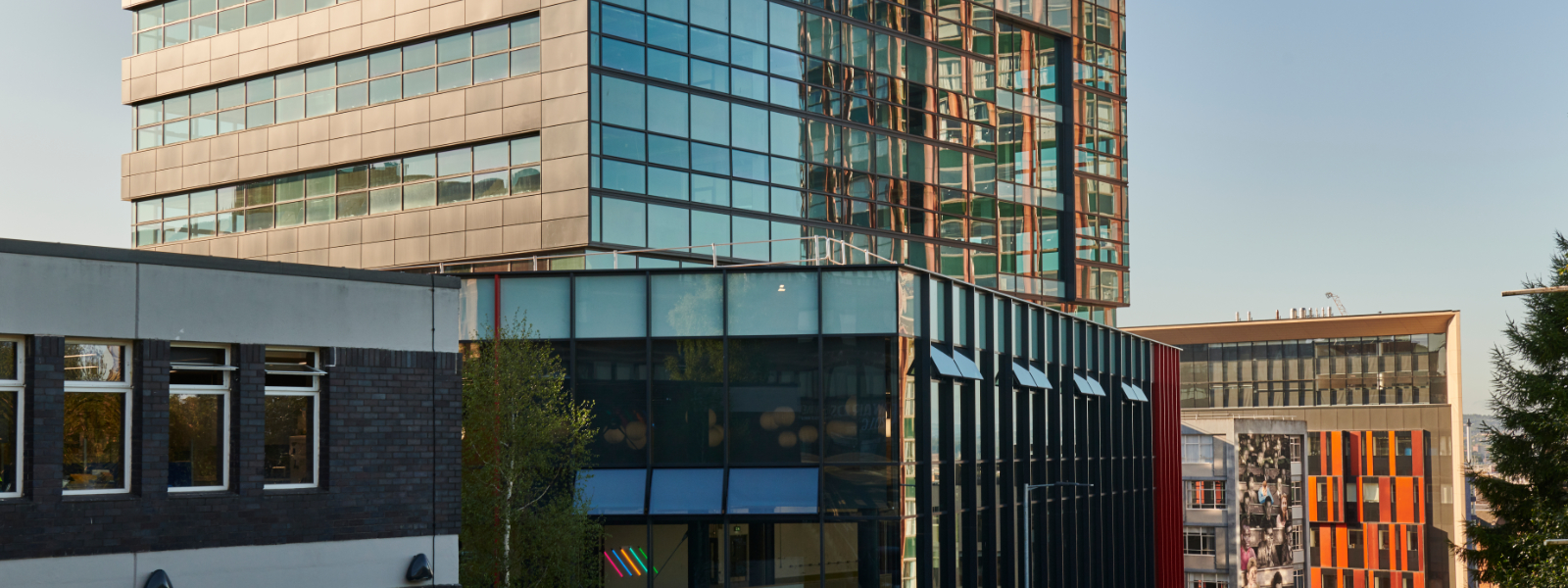
Leonard is a student from the MSc Health & Social Policy programme at the University of Strathclyde
Tell us a little bit about your background
I was born in Bellevue, Washington and raised in Austin, Texas. I'm a fourth year Doctor of Medicine (MD)/Master of Public Health (MPH) student at the University of Texas Medical Branch. I'm currently on a two-year academic leave of absence from medical school to pursue a MSc in Health and Social Policy at the University of Strathclyde as a US-UK Fulbright Scholar and a Master of Business Administration (MBA) at the University of Cambridge as a Rotary Global Grant Scholar. Outside of school, I love travelling, rock climbing, and exploring new restaurants and coffee shops.
What drew you towards undertaking this degree?
I started this journey in a BS/MD program at the University of Houston with conditional acceptance to medical school. At the University of Houston, I learned about the impact of upstream drivers of health on health outcomes, so I began a MPH during medical school. Upstream drivers of health are only as good as the systems, policies, and leaders that shape them, so I chose to pursue a MSc in Health & Social Policy at the University of Strathclyde.
I was drawn to the MSc in Health & Social Policy because of its integrated policy lens that would complement my clinical and public health training. The breadth and depth of the curriculum impressed me. While the Co-Production & Engagement in Health Policy & Practice core module would help build upon my community-based harm reduction work in Texas, the Prisons, Power & Punishment elective offered an opportunity to critically examine the ethical tensions and power dynamics of providing care for incarcerated patients at the prison hospital where I received some of my clinical training. The MSc in Health & Social Policy provided a structured academic program to explore important health and social equity challenges that are often undertaught in medical education.
Tell us about the format of the programme. What is a typical week like?
The MSc in Health and Social Policy includes six modules across two semesters followed by a dissertation. During my first semester, I chose to take four modules (8 hours of class per week): Prisons, Power, & Punishment; Welfare Concepts & Ideas; Inequalities & Social Policy; and Co-Production & Engagement in Health Policy & Practice. During my second semester, I completed my two remaining modules (4 hours of class per week): Qualitative Methods and Health Policy from an International Perspective.
I started at Strathclyde after my third year of medical school in Texas which involved clinical rotations where I worked up to 80 hours per week (not including additional time spent studying), so my schedule at Strathclyde felt very flexible. A typical week at Strathclyde included reading and writing at local coffee shops (my favourite is Spitfire Espresso!), day trips to explore Scotland, climbing at the Glasgow Climbing Centre, and hanging out with the wonderful friends I made at Strathclyde.
Tell us a little bit about your placement-based dissertation
One of the biggest advantages of the MSc in Health and Social Policy is the opportunity to pursue a placement-based dissertation. Through Strathclyde's international academic partnerships and generous funding from the Department of Social Work and Social Policy, I completed my placement-based dissertation with the Students' Health and Welfare Centre's Organization (SHAWCO) in Cape Town, South Africa. My ethnographic research examined the impact of student-led interventions addressing upstream drivers of health on marginalized populations in Cape Town, South Africa. In March and April 2025, I observed a mobile free health clinic for underserved patients, attended SHAWCO leadership meetings and discussions with community health workers, participated in a community site visit to an informal settlement, audited University of Cape Town course lectures, and visited SHAWCO facilities and tertiary government-funded teaching hospital. These placement activities were important to contextualise the health system issues faced by vulnerable populations in Cape Town. As a US medical student and UK postgraduate student, observing community-based healthcare solutions in actions and learning from University of Cape Town medical students and faculty offered unique insights into the South African healthcare landscape.
What was the academic support at Strathclyde like?
The academic support at Strathclyde has been phenomenal. I am deeply grateful for Dr. Emma Hill, the programme lead for the MSc Health and Social Policy, and Dr. Jackie Stewart who worked tirelessly to support my academic experience in the UK and South Africa. With so many opportunities at Strathclyde, there were a lot of moving parts this past year. I was in South Africa for my placement during the latter part of my second semester, and my professors were flexible with deadlines for my course assignments.
Later this summer, I will travel to Germany and Poland as a 2025 Medical Fellow for the Fellowships at Auschwitz for the Study of Professional Ethnics (FASPE) where I will study medical ethics and professionalism through the historical lens of the Holocaust. Although this is in the middle of my dissertation period, my academic supervisors have been fully supportive of this once-in-a-lifetime opportunity.
What are your ambitions for the future?
Once I complete my year at Strathclyde, I'll pursue a MBA at the University of Cambridge as a Rotary Global Grant Scholar before returning to Texas for my final year of medical school. After spending six years pursuing four graduate degrees, I plan to pursue clinical training in an internal medicine residency program.
As I continue forging a unique path in my medical training, my goal is to serve patients both at the bedside as a thoughtful clinician and more broadly through structural change as a health system leader. I plan to integrate my clinical training, MPH, MSc and MBA to advance quality health services for marginalized communities and alleviate structural causes of health inequities.
What advice would you give to someone considering applying for this course?
Reach out to Strathclyde staff, students and alumni! Choosing a graduate program is such an important decision. Everyone I contacted was incredibly helpful when I was considering different graduate programs in the US and the UK. I can be reached at leonard.wang.2024@uni.strath.ac.uk and I'm always happy to chat about my experience at Strathclyde.
